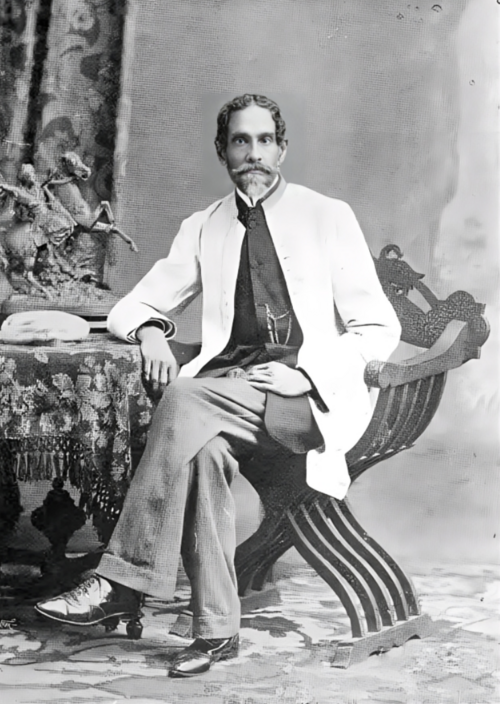Pioneer of Public Service: Satyendranath Tagore’s Inspiring Journey : Remembering him on his Birth Anniversary
As many of you might be scrolling through social media, perhaps even following the journey of characters like Abhilash from the popular web series Aspirants, the dream of becoming an IAS officer is as vibrant and fervent as ever. The UPSC Civil Services Examination remains the ultimate Everest for countless young Indians, a testament to dedication, sacrifice, and the relentless pursuit of public service. We witness their struggles, their triumphs, and their unwavering spirit through the screen, feeling every ounce of their ambition.
But what if I told you that this very dream, this aspiration to join the highest echelons of Indian administration, has roots stretching back to a time when the odds were not just stacked, but almost entirely insurmountable? Today, on his birthday, we pause to celebrate a true pioneer who, against incredible odds, achieved a feat that reverberated across a subjugated nation and continues to inspire us: Satyendranath Tagore.
Born on June 1, 1842, into the illustrious Tagore family of Calcutta, Satyendranath grew up in an environment steeped in intellectual curiosity and artistic expression. His father was Debendranath Tagore, a prominent leader of the Brahmo Samaj, and his younger brother was none other than Rabindranath Tagore, the Nobel laureate. Yet, even within such a progressive family, the path he chose was revolutionary.
The Audacious Dream: Breaking the Steel Frame
In the mid-19th century, the Indian Civil Service (ICS) was the “steel frame” of British rule in India – a highly exclusive and powerful cadre dominated by Europeans. The examination itself was held only in London, making it a monumental challenge for any Indian simply to attempt it, let alone pass. The journey involved a daunting and expensive sea voyage, adapting to a foreign land and culture, and competing against candidates who had the inherent advantage of a Western education from birth. Furthermore, the British often manipulated rules like age limits to make it even harder for Indians.
Satyendranath, fueled by his own intellect and perhaps the progressive spirit of his family, harbored the audacious dream of cracking this elite system. He sailed to England in 1862, along with his friend Monomohun Ghose, to prepare for the ICS examination. The struggles were immense: cultural adjustment, rigorous academic demands, and the inherent prejudices of the time. But his resolve was unshakeable.
The Breakthrough: A Beacon of Hope
In 1863, after an arduous preparation, Satyendranath Tagore achieved the seemingly impossible:
he successfully passed the Indian Civil Service examination. This was not just a personal triumph; it was a watershed moment in Indian history.
He became the first Indian to clear the prestigious ICS examination, effectively breaking the British monopoly on this powerful administrative service.
His success sent ripples of hope and inspiration across India, proving that Indians, given the opportunity, could compete with the best in the world.

Life as an ICS Officer and Beyond
Upon returning to India, Satyendranath embarked on his career as an ICS officer, serving in various capacities in Bombay Presidency (now parts of Maharashtra and Gujarat). His work life, while bound by the constraints of British administration, was marked by integrity and a commitment to public service. He served as a District Judge and eventually retired as a Sessions Judge in Satara.
However, Satyendranath’s contributions extended far beyond his administrative duties. He was a polymath with diverse interests and high points that touched many facets of Indian life:
- Social Reformer: He was a strong advocate for social reforms, particularly women’s emancipation. He encouraged his wife, Jnanadanandini Devi, to break purdah and adopt more modern customs, leading by example in a conservative society.
- Linguist and Author: Fluent in several languages, he translated works from Marathi into Bengali and contributed significantly to Bengali literature. His travelogues and essays provided valuable insights.
- Cultural Nationalist: He was deeply committed to promoting Indian arts and culture. He played a significant role in establishing the first formal mela (fair) promoting indigenous goods and crafts, aiming to foster economic self-reliance.
- Mentor and Inspiration: His very existence in the ICS inspired many other young Indians to pursue higher education and administrative careers, gradually diversifying the service.
Satyendranath Tagore’s life, though perhaps overshadowed by his more famous brother in later years, remains a beacon of courage, intellect, and perseverance. He was a pioneer who, through sheer determination, chiseled away at the walls of colonial exclusivity. His high point of clearing the ICS was not just a personal achievement; it was a symbolic victory for a nation yearning for self-respect and opportunity.
So, as we celebrate his birthday today, let his story remind us that every barrier broken, every ceiling shattered, begins with one individual’s unwavering belief in their own potential and the courage to pursue it, no matter the odds. Satyendranath Tagore truly embodied the spirit of a trailblazer, showing us that with grit and intellect, an Indian can indeed change the course of history, leaving an indelible mark for generations to follow. He is a true hero of India.
Discover more from RJ ViSHAL
Subscribe to get the latest posts sent to your email.



